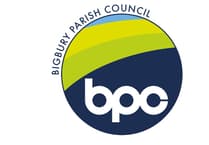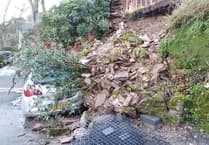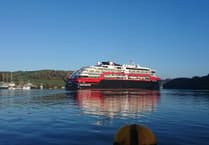An innovative project aimed at recycling abandoned boats has been launched by South Hams District Council (SHDC).
The project, which aims to reduce marine pollution, will see a disused sailing vessel being dismantled at Dartmouth’s Creekside Boatyard prior to looking at ways to fully recycle the boat’s parts.
The findings from the two-week study, which boasts support from the Royal Yachting Association (RYA), will help support local harbour authorities and coastal communities who struggle to dispose of abandoned vessels in harbours, marinas and boatyards.
Data from the study will also be collected by the RYA’s environmental programme, The Green Blue.
Cllr John Mckay, SHDC’s executive member for climate change and biodiversity, said the increase in the construction of recreational vessels from the 1980s has meant that many will reach their end of use over the coming decades, and that the majority will end up in land fill.
“Most of these will have hulls made from mixed materials such as fibre reinforced plastic. Currently, there are few incentives for boat owners to recycle older boats due to cost and lack of specialised recycling facilities.”
“Most vessels that have been abandoned on the water end up being salvaged and scrapped. While some components can be commercially recycled, the majority, including composite hulls, end up in land fill.
“With our focus on climate change, it is vital we look at what we can do within our District’s waters. Being able to recycle unused vessels will go a long way in achieving our net-zero targets,” he said.
Fully recycling composite materials such as Glass Reinforced Plastic (GRP) is a highly complex operation, while the leaking of hazardous substances can also pose a danger to the environment and wildlife.
Paul Singer, business and qualification development coordinator at South Devon College, revealed that there are more than 75,000 tonnes of end-of-life composites generated in the UK every year.
“This pilot project will not only provide the evidence for larger scale projects but also raise awareness of dealing with waste composites with our students,” he said.
James Scott-Anderson, from marine environmental specialists Blue Parameters, who are heading up the specialist delivery of the project, commented that the study would help to provide a practical solution with potential economic value.
SHDC will release a report on the findings in the summer with the hope of raising awareness of the issues surrounding abandoned and end-of-use boats, and further expanding the project.
According to a report in Yachting Monthly a lack of regulation about the disposal of old boats and associated high costs, which are reportedly about £3,000 for a 30ft boat, can result in vessels being dumped.
The problem has got worse since the Covid pandemic, particularly in popular sailing areas such as the South West and Cornwall.
A BBC report from 2021 revealed that hundreds of plastic boats were being regularly dumped around the shores of Devon and Cornwall, costing the authorities thousands of pounds.
Anyone who spots an abandoned boat, can report it at www.thegreenblue.org.uk




